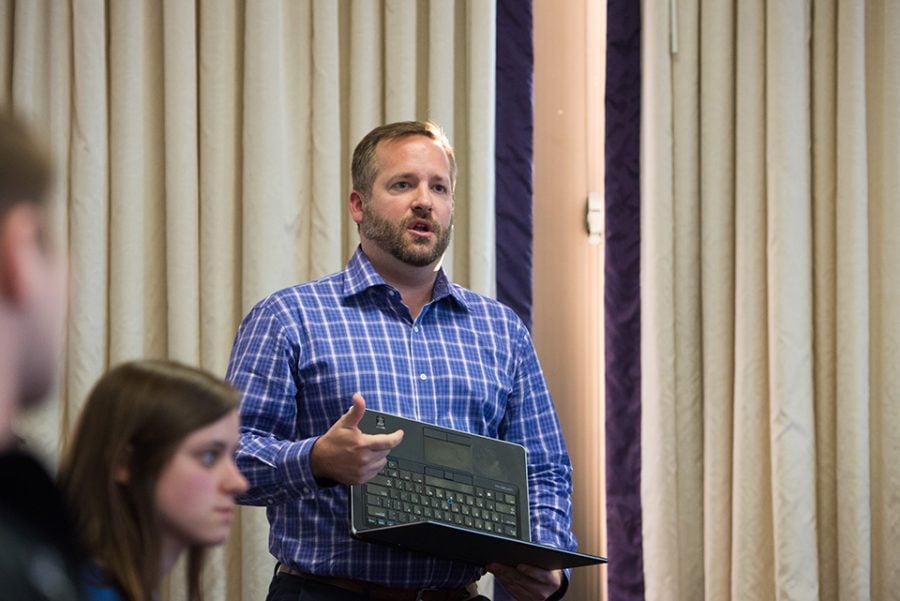Student Organizations & Activities will meet all student groups to discuss inclusivity, membership
Daily file photo by Lauren Duquette
Brent Turner, executive director of Campus Life, speaks at Associated Student Government Senate in May. Student Organizations & Activities will meet with all University-recognized student organizations to discuss making involvement on campus more inclusive.
September 22, 2016
Student Organizations & Activities will meet with all University-recognized student organizations to discuss how to make involvement more inclusive on campus, said SOA director Kourtney Gray.
An official from the Office of Campus Life told The Daily during Spring Quarter that most student groups and organizations would have to offer open admission. The University aims to have fully open admission by Fall Quarter 2017, said Patricia Telles-Irvin, vice president for student affairs.
The initiative was designed to encourage a less competitive culture, Telles-Irvin said. The initiative prompted mixed reactions, with several leaders of campus organizations citing concerns students would not take commitments as seriously with open membership.
Meeting with all student organizations — which number more than 500 — will allow the University to understand the specific needs of student organizations and how they can be held accountable to be inclusive, Gray said.
Groups could be incentivized to implement more inclusive admissions with more resources such as improved funding through Associated Student Government and increased meeting and work space, Gray said. The meetings will help determine exactly what incentives would best benefit student groups.
“It’s not a policy — it’s just an initiative. What we’re looking to support is a community and culture that is inclusive and not exclusive,” Gray said. “My goal is to get student feedback and be true partners in developing how this looks (and) how we can support one another in this initiative.”
Still, if groups don’t comply with the initiative it could also “affect their recognition,” Gray said, referring to official University recognition through Wildcat Connection. Without recognition, groups would lose funding from ASG and access to student organization fairs, Gray said.
Telles-Irvin said she recognizes the challenges for groups to provide complete open admissions, ranging from limited resources for new students to the need for specific skills for performance groups. Those varied concerns make conversations with students crucial, she said.
Still, the initiative is part of the University’s larger effort to be more inclusive, Telles-Irvin said. She added that student groups play a critical role in getting students engaged and feeling included at NU.
“It should be about inclusivity, engagement, community,” Telles-Irvin said. “We need to think about our guiding principles — why do we exist? Why do we have student organizations? How do we all serve that purpose?”
ASG President Christina Cilento said ASG has been in conversation with the University since the initiative was first publicized and has been collecting input from students to present to administrators. The student input could help form a smooth implementation of the initiative, the SESP senior said.
“Going into school as a freshman and having all of these things right off the bat you have to apply for is a little bit stressful, so to be able to know you can join more student groups in an open capacity would reduce the stress,” Cilento said. “But I also recognize there are legitimate concerns students have with every single student group having open membership.”
Mariana Alfaro contributed reporting.
Twitter: @matthewchoi2018
Email: [email protected]












